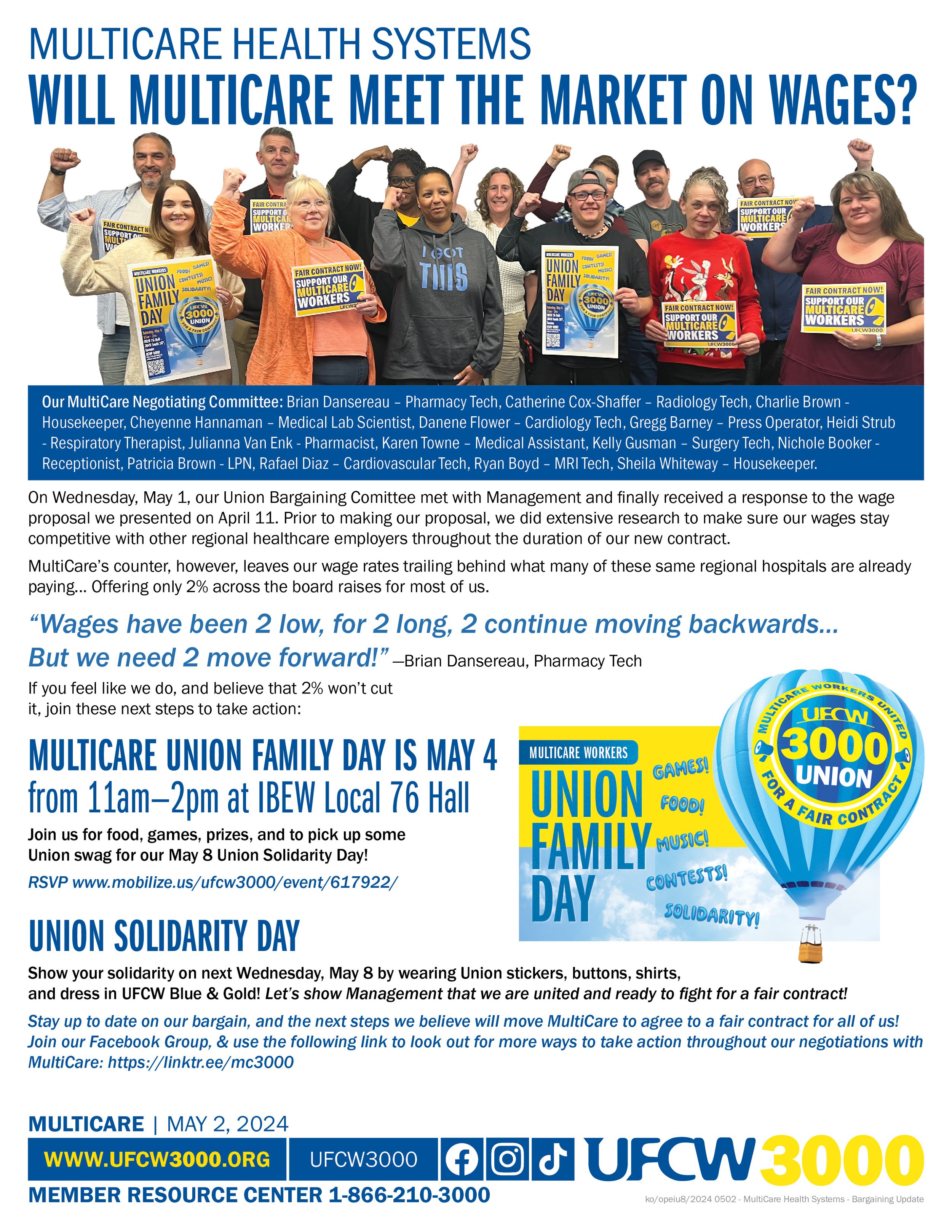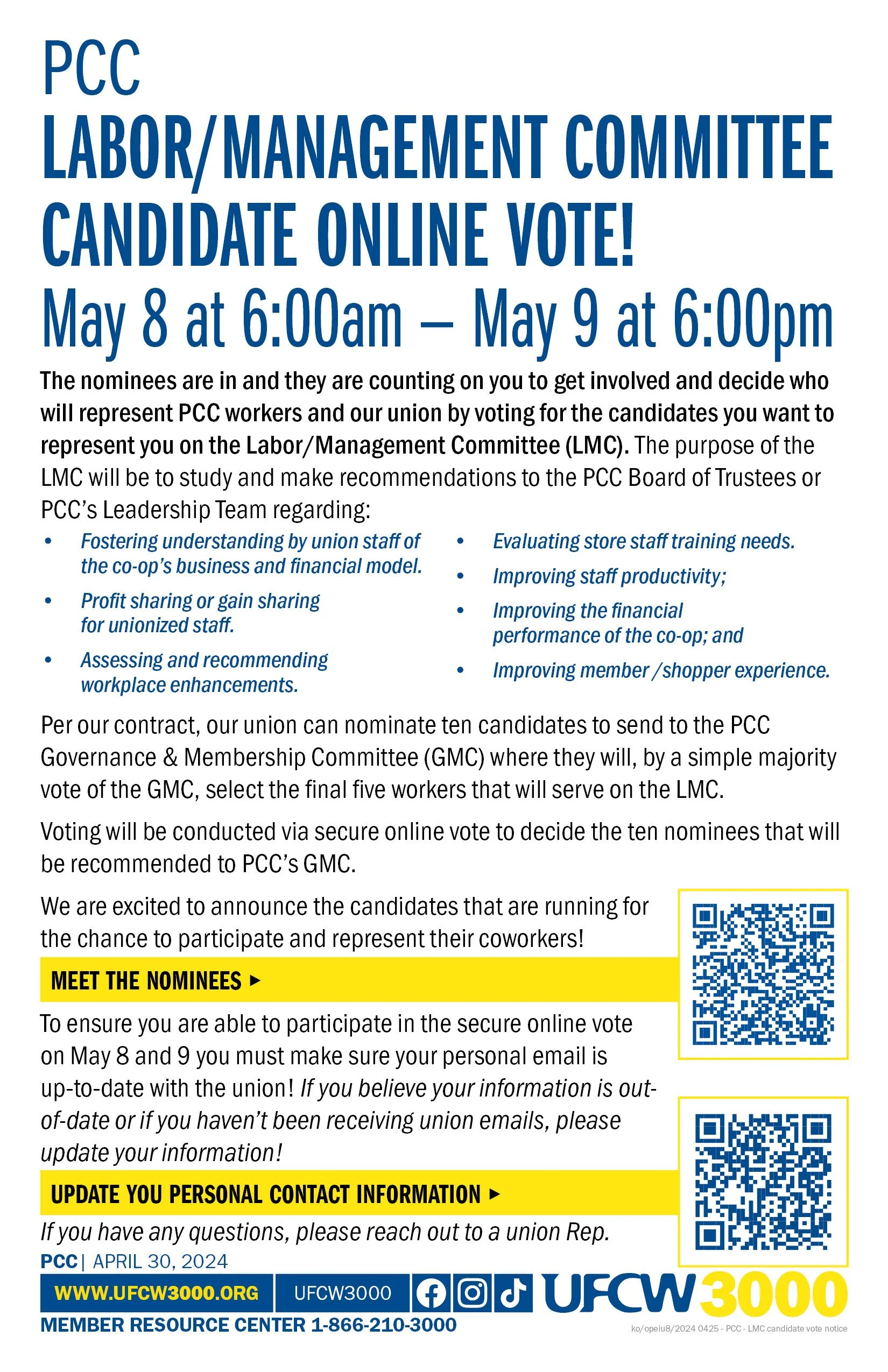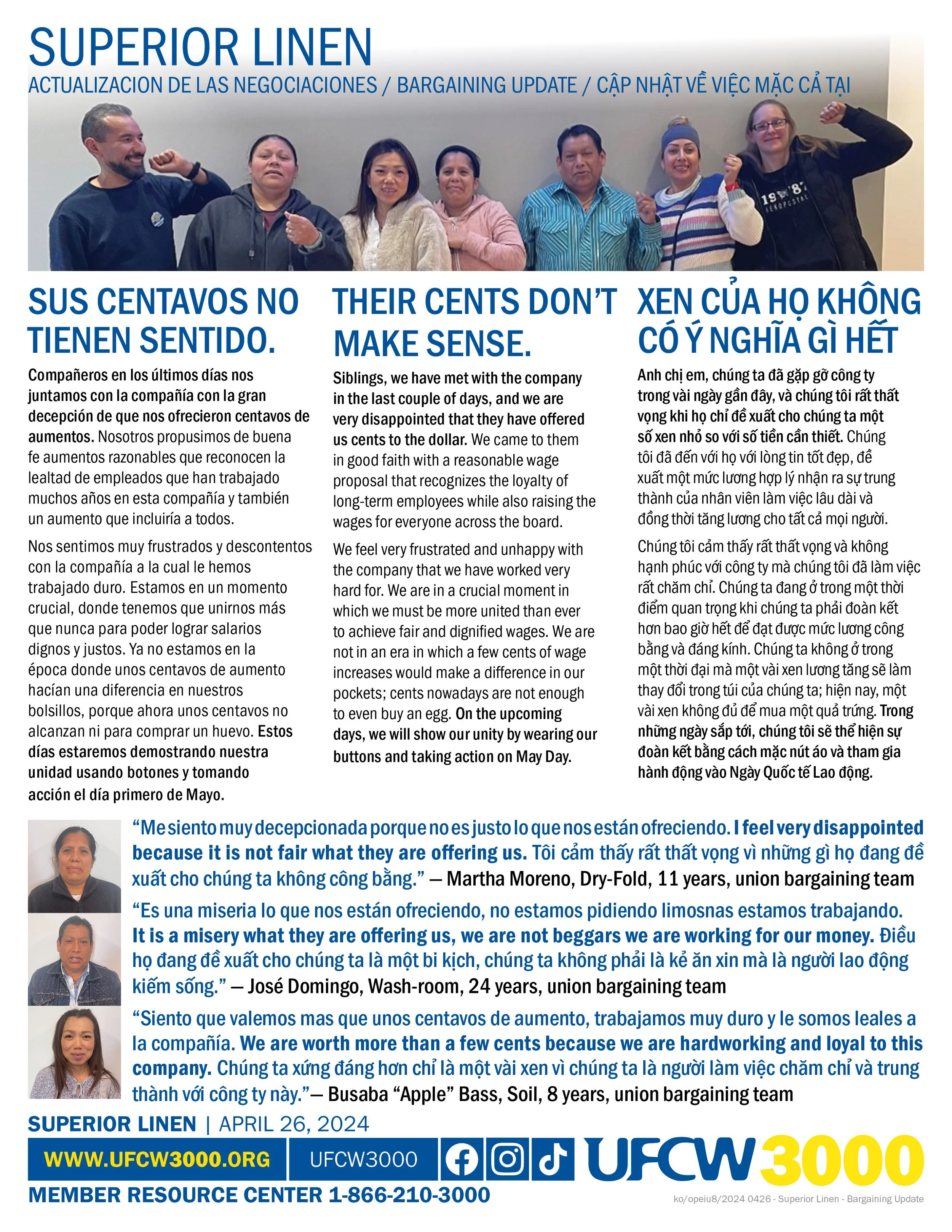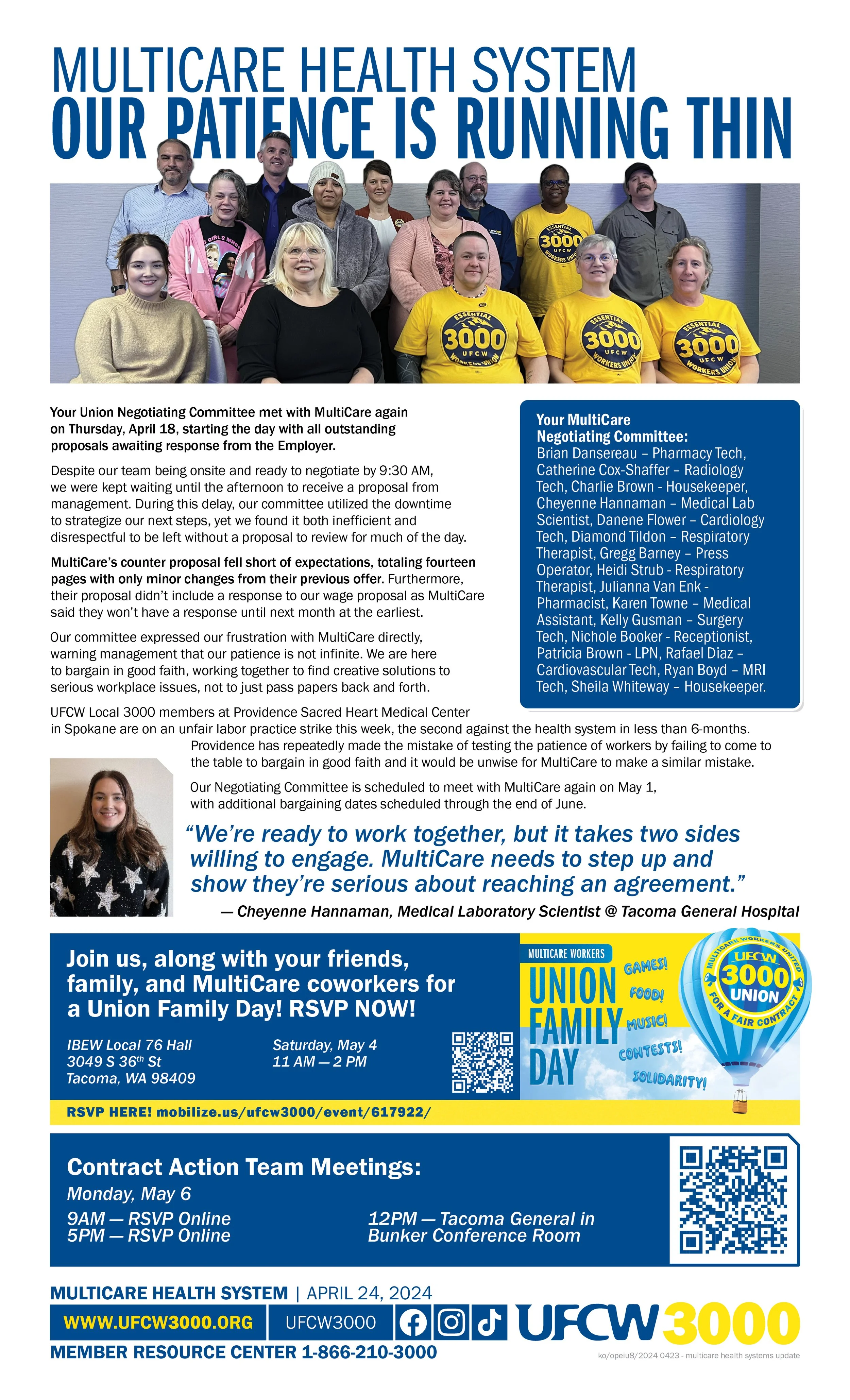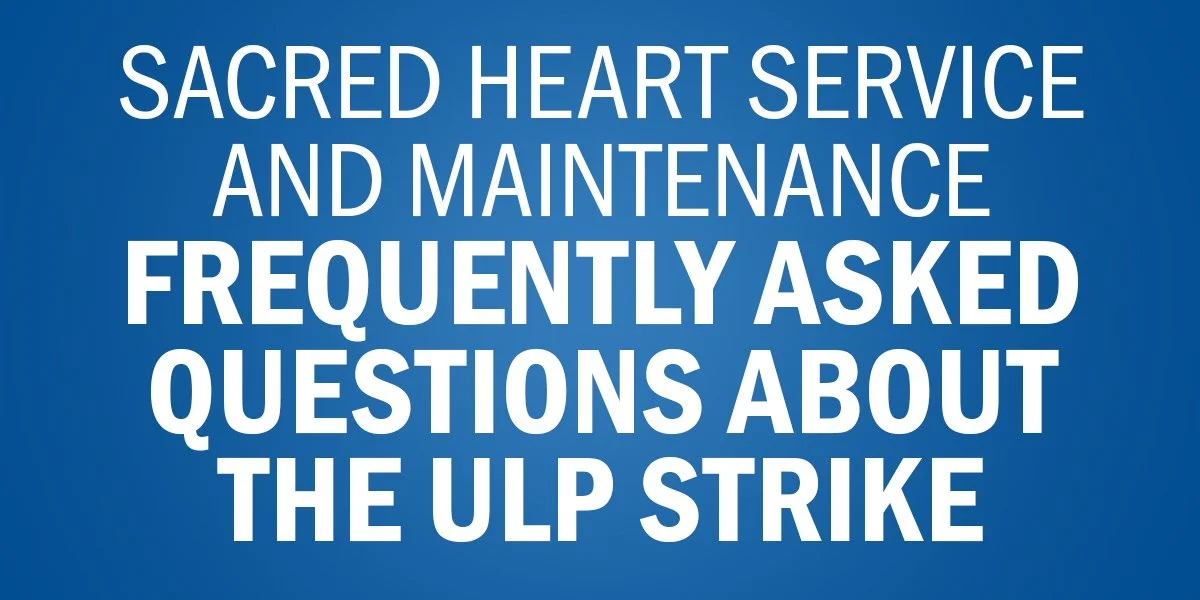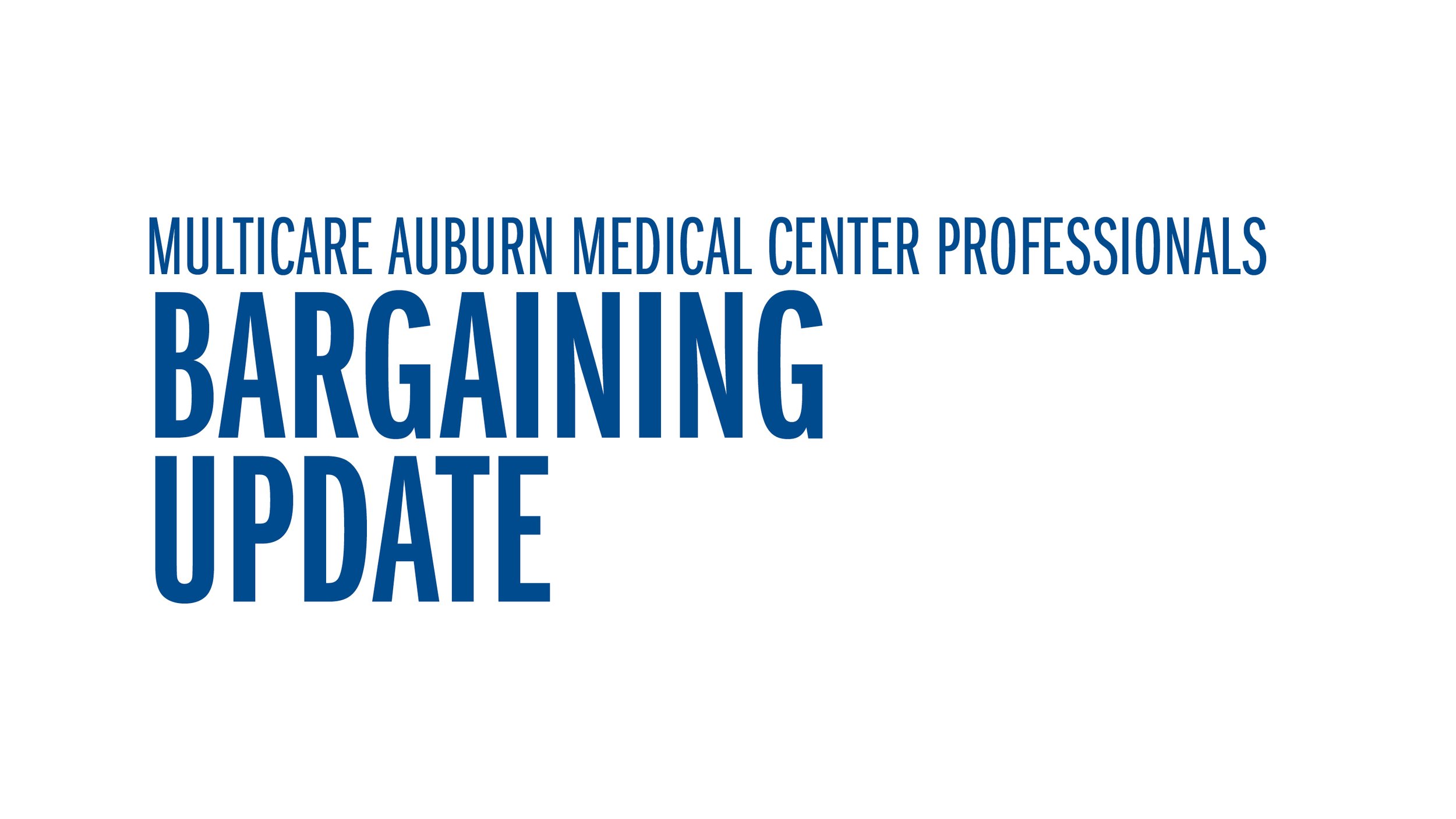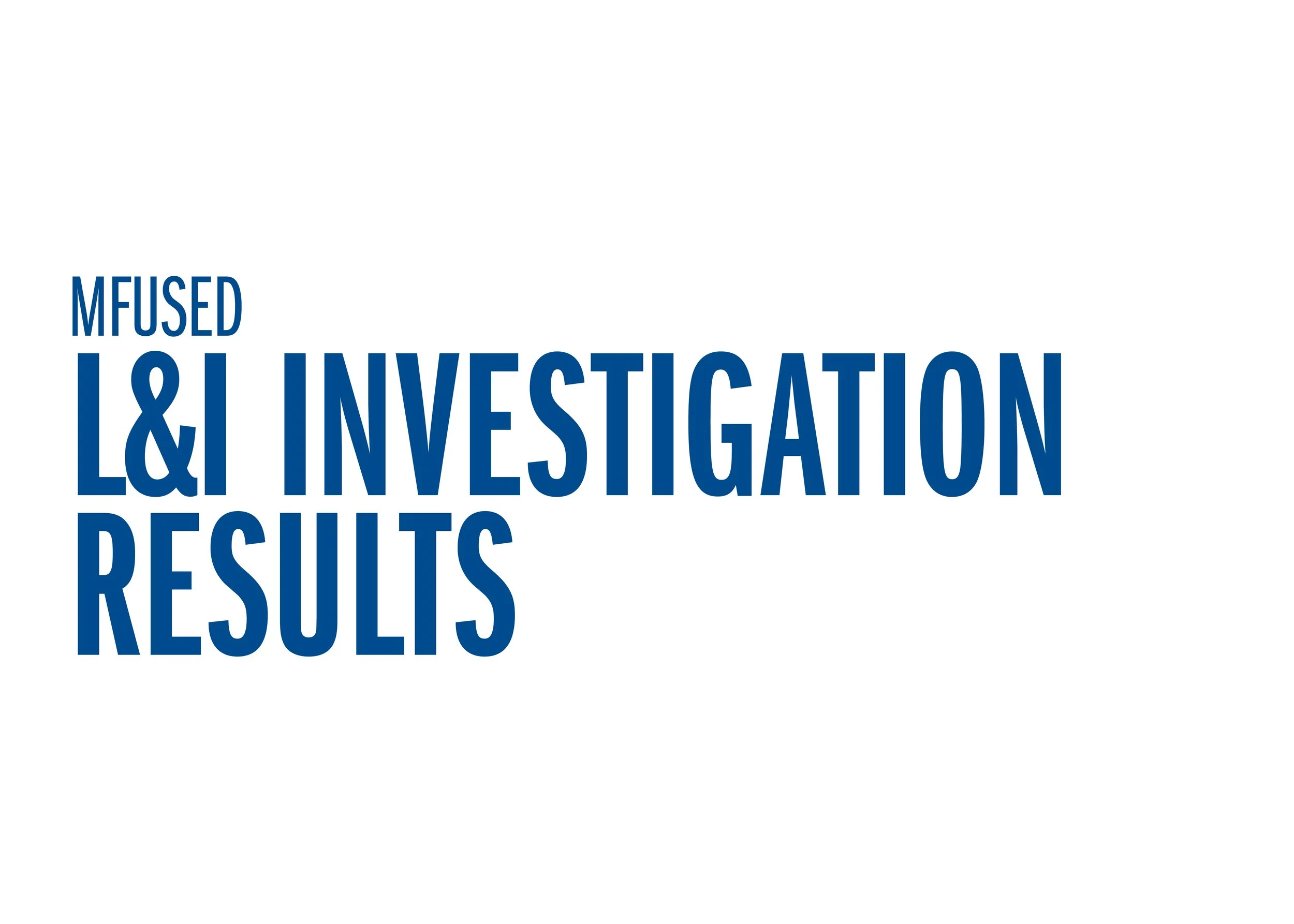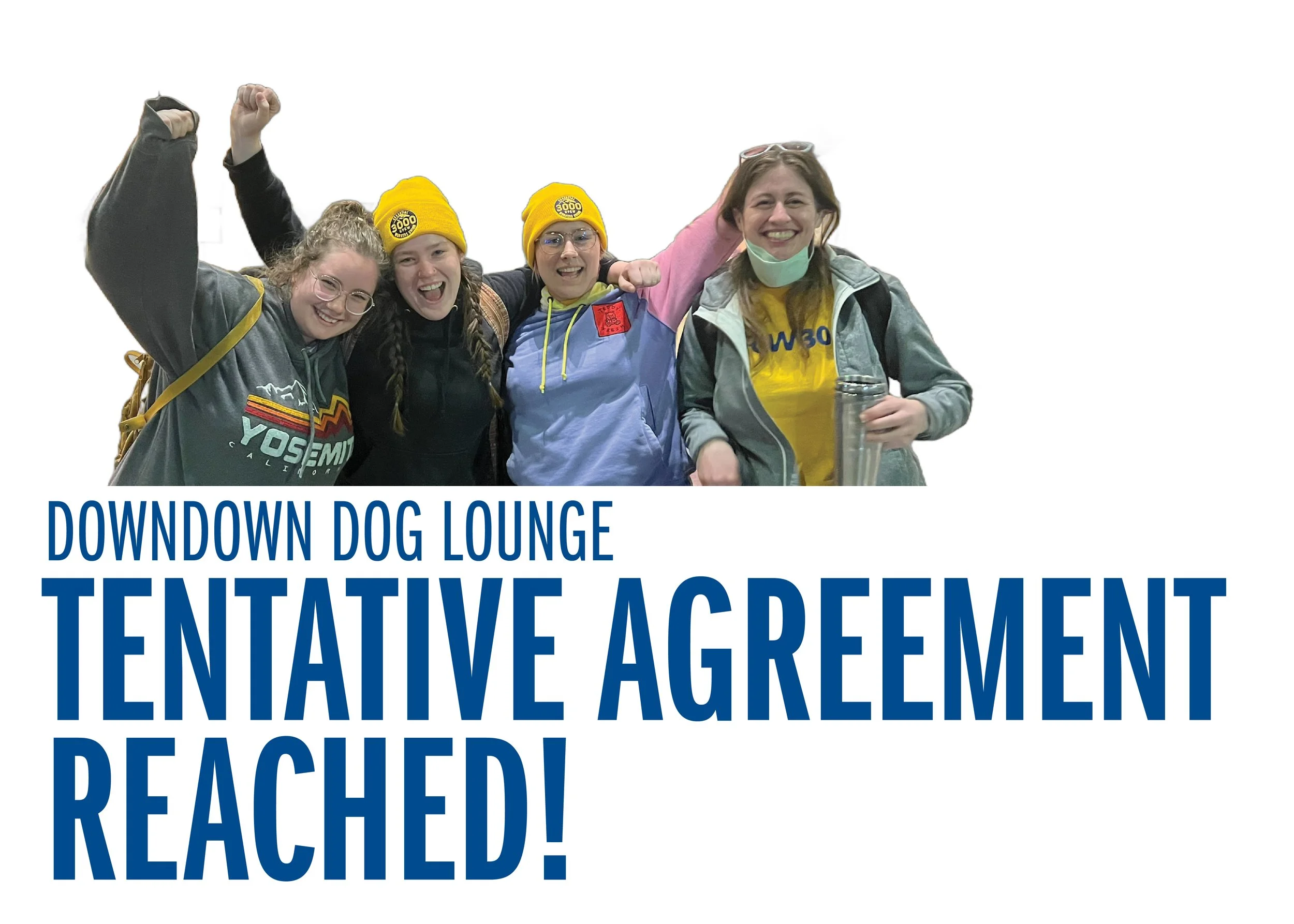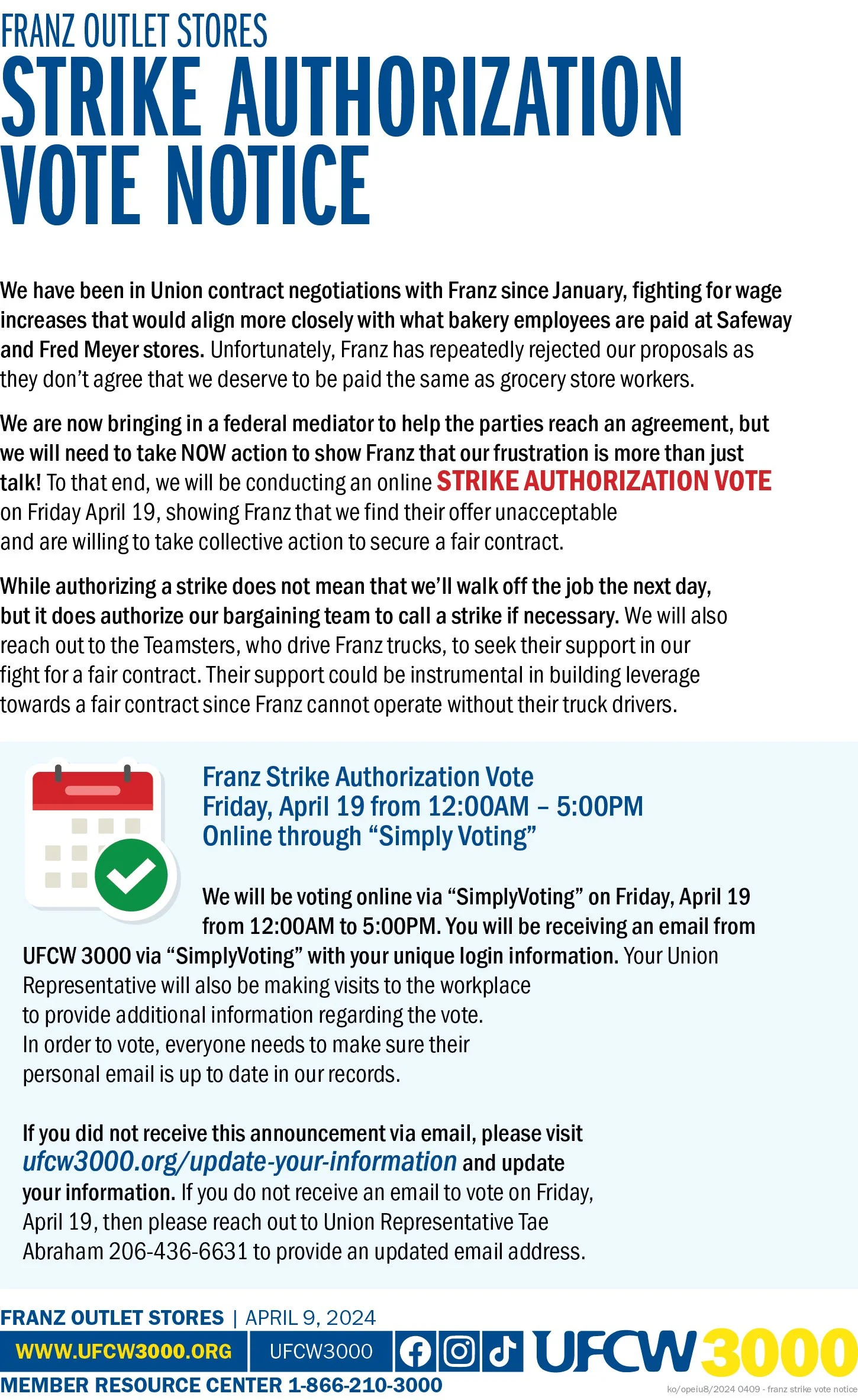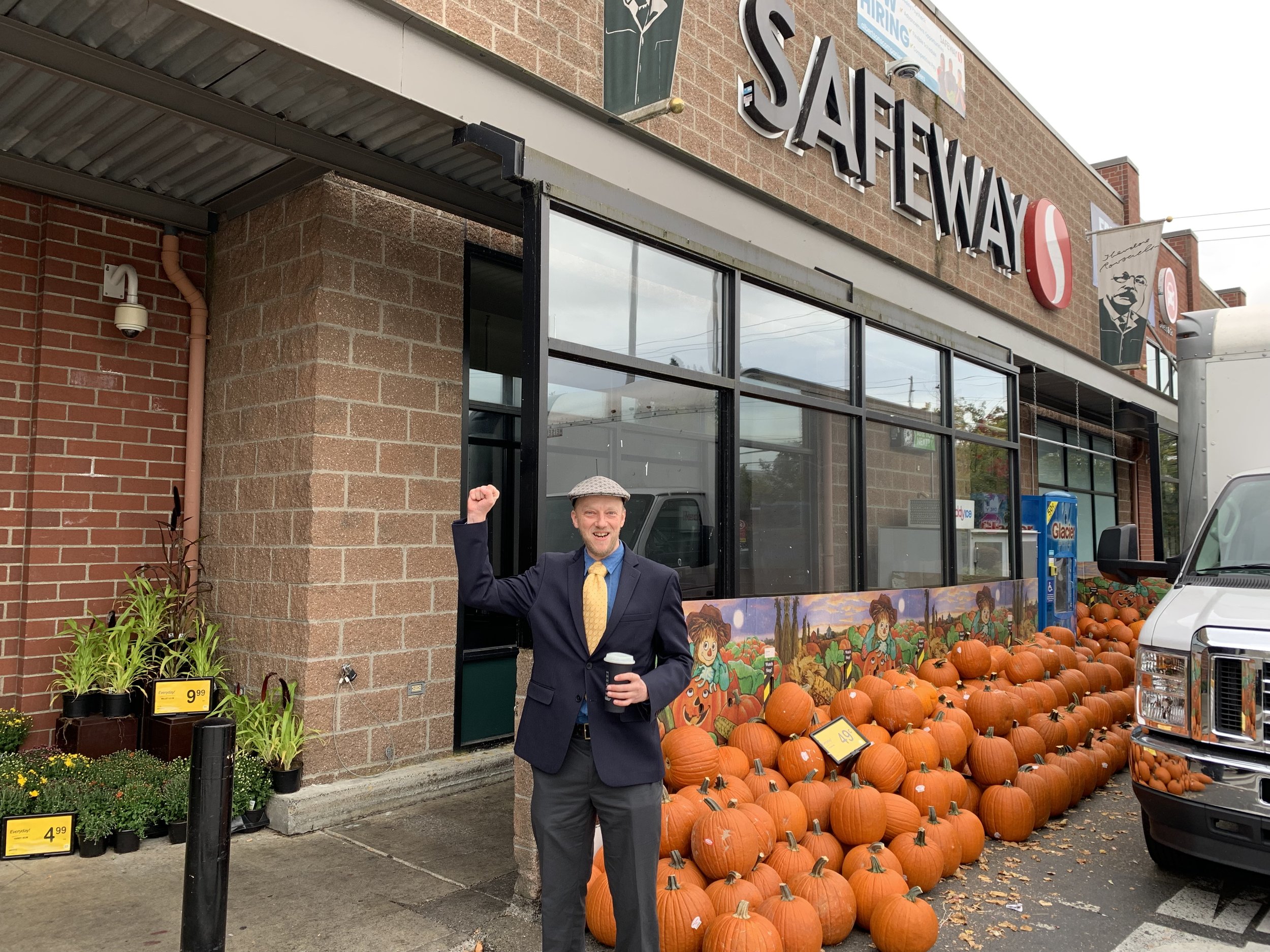Our state’s Department of Labor & Industries (L&I) has produced a document with their recommendations for grocery stores to ensure that stores comply with the state’s social distancing requirements. Find a printable PDF of this document on the L&I website here.
If you think your store is not following social distancing protocols, there are lots of ways to report that, including via safety and health complaints or through the state’s COVID-19 social distancing report form, or by emailing UFCW 21 at safetyreport@ufcw21.org.
Coronavirus (COVID-19): Protecting Grocery Store Workers
The Department of Labor & Industries (L&I) requires employers to implement the Governor’s proclamation. Employers must ensure social distancing for employees and customers; frequent and adequate handwashing; and that sick employees stay home. Employers must also provide basic workplace hazard education about coronavirus and how to prevent transmission in languages best understood by employees.
Workplace Discrimination
It is against the law for any employer to take any adverse action such as firing or threats against a worker for exercising safety and health rights such as raising safety and health concerns to their employer, participating in union activities concerning safety and health, filing a safety and health complaint or participating in a Division of Occupational Safety and Health (DOSH) investigation. Workers have 30 days to file their complaint with L&I DOSH and/or with Federal OSHA.
Ideas for an Effective Social Distancing Plan:
Limit the number of customers entering the store to facilitate social distancing at store entrances, throughout store and at check-out lines.
Require all workers to stay at least six feet away from customers and coworkers.
Temporarily mark six-foot increments (using adhesive colored tape, chalk, etc.) on the ground or floor to ensure social distancing.
Post large print attention-grabbing signs readable from a far distance (or use portable, electronic reader boards) that inform customers of social distancing practices.
Designate workers to monitor and facilitate distancing at check-out lines.
Ideas for an Effective Handwashing Plan:
Install hand-sanitizing dispensers at store entrances and at key locations inside for customers.
Ensure all workers know why and how to effectively wash hands for at least twenty seconds.
Require workers to wash hands frequently with soap and water for at least twenty seconds, such as when they arrive at work, leave their workstations for breaks, eat, use tobacco, and after handling money.
Ensure gloves are used for cart retrievers, handling money, common use of the same cash register or keypad by different cashiers, food safety and cleaning.
Set up a schedule to keep these supplies well stocked and trash emptied.
Ensure Sick Workers Are Not at Work:
Ideas for Providing Basic Workplace Hazard Education About Preventing Coronavirus Transmission:
Instruct all workers on social distancing, handwashing, and other store-wide safety procedures related to coronavirus.
Teach workers the importance of hand washing before eating, drinking, or using tobacco.
Advise on respiratory etiquette, including covering coughs and sneezes and not touching eyes, noses, and mouths with unwashed hands or gloves.
Prohibit sharing utensils, phones, work tools, and other workplace items that are not sanitized.
Checkout Stands and Counters Considerations
Consider closing self-check stands if not all surfaces can be sanitized between customers and if it is not possible to ensure at least six feet between users.
Consider installing “sneeze shields” at check stands, and ask customers to stand behind them, or relocate pay station key pads further away from worker.
When supplies are available, provide disposable wipes/hand sanitizer at check-out stands for employees and customers (e.g. at key pads, registers, bagging area).
Stocking and Surface Cleaning
Schedule as much stocking and deep cleaning as possible during closing hours. If a 24-hour store, stock during the slowest period of the night.
Appoint a designated sanitation worker(s) at all times to continuously clean and disinfect high-touch surfaces on a significantly increased schedule. Use the environmental cleaning guidelines set by the CDC.
When disinfecting for coronavirus, the EPA recommends using the longest recommended contact time and/or most concentrated solution per the label.
Be sure to follow the label directions for FOOD CONTACT SURFACES when using the chemical near or on utensils and food contact surfaces.
Use protective gloves and eye/face protection (e.g. face shields and/or goggles) when mixing, spraying, and wiping with liquid cleaning products, like diluted bleach.
Other Protective Measures
Provide ways for workers to express any concerns and ideas to improve safety.
Alert store managers or shift supervisors of strategies on handling customers or workers who are not following social distancing practices or demonstrate signs of illness during the visit. For example, it might be helpful to move a coughing customer out of line to a separate checkout station distant from others.
Resources
L&I’s COVID-19 webpage
County Public Health Grocery store guidance with downloadable posters here
WA Food Industry Association: www.wa-food-ind.org/Covid-19
Get help
For a free safety and health consultation go to http://www.Lni.wa.gov/SafetyConsultants or call 1-800-423-7233 or visit a local L&I office.




